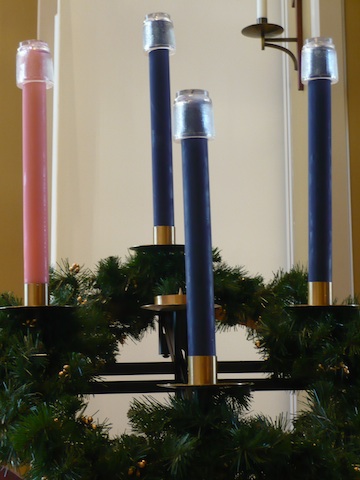Who’s in the Middle?
December 4th, 2011 Posted in writing | Comments Off on Who’s in the Middle?Galileo gave us a helio-centric (sun-centered) model of the solar system. He proclaimed that the earth moved around the sun, not the opposite; the earth wasn’t in the center, the sun was. And people persecuted him for saying this.
I think there’s something like this in our time. Specifically, I think many have a me-liocentric view of things in which I put myself, my wants, and my wishes at the center of the world, and expect everything and everyone else to revolve around me. And I don’t want to hear another message.
But the gospel gives that other message anyway, and illustrates it by reminding us that John the Baptist told people that, though he was announcing the coming of the Christ, he considered Christ as being at the center not himself. He even said that he wasn’t worthy to untie the Messiah’s sandal straps.
In Advent let’s ask if perhaps we have put ourselves in the center of things, judging everything else as having value only in relationship to ourselves and not being willing to hear anything different. Maybe we need to recalibrate our thinking and start living in a Christ-ocentric universe in which Christ comes first and we find our true place in being related to him, and not the other way around. Do you think that kind of re-orientation will be easy or difficult?

